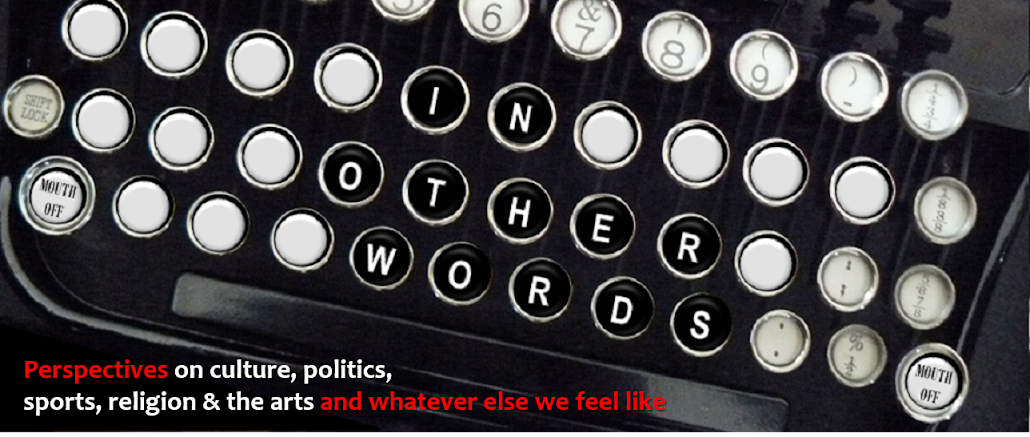By Mitchell
One of the things you notice about a commuter church like St. Olaf - where most of the weekday Massgoers are not members per se - is that everyone brings their own parish's customs to the weekday Mass. It's kind of a Catholic melting pot, where almost anything goes. Some people kneel for communion; others stand. Many assume the orans posture during the Our Father and other parts of the liturgy; others do not.
And then you have the woman who was next to me during the 7:00 this morning. During the Orate, Fratres she studiously avoided any use of the male pronoun: "May the Lord accept the sacrifice at your hands, for the praise and glory of God's name, for our good and the good of all God's church." (I'm not sure, but she may have raised her voice slightly when pronouncing God.)
Hmm, I wondered. This wasn't the first time I'd experienced something like this, but I'd never heard it so up close, without being lost in the sound of the congregation's general response. I waited to see what she'd do at the Sanctus and Benedictus. I wasn't disappointed: ". . .Heaven and earth are full of God's glory. . . Blessed is God who comes in the name of the Lord."
Now, aside from being a very cumbersome and forced sentence, I'm pretty sure there's something theologically wrong here. In the first place, I don't think Jesus was talking about Himself when He said, "Blessed is he who comes in the name of the Lord." (Matthew 21:9; the word "he" isn't capitalized in the Douay-Rheims, which generally did use a capital "H" when referring to Him.) It also begs the question: can God worship Himself? After all, isn't that what it's saying? Blessed is God who comes in the name of the Lord. Isn't this kind of like matter and anti-matter coming together? It just can't happen! Besides, if Jesus were referring to Himself in that verse, He'd be putting Himself on an equal footing with God - assuming that the use of the word "God" was referring to His own journey into Jerusalem - and that, as John reminds us, was something He generally didn't do. (Philippians 2:6) So her translation was not only bad grammar, it was flat wrong.
As I think of it now, maybe this woman's a regular parishioner at St. Joan of Arc. We just don't know, and I didn't ask her afterward.
Anyway, what brought this to mind is a very interesting point made by Robert Benne in the latest issue of First Things (link for this article not up yet). It concerns a recent proposal at the ELCA (Lutheran) Assembly that will result in a change to the words of the Nicene and Apostles' Creeds, all in the name of inclusive language, "so that hypersensitive feminists will not be offended by masculine language":
In the Nicene Creed we will avoid confessing that Christ was "made man." Rather, he "became human." In the Apostles' Creed we will evade a masculine pronoun for God in the second article. Instead of "We believe in Jesus Christ, his only Son," we will now confess that "We believe in Jesus Christ, God's only Son." The ECLA is now willing to risk a heretical formulation of the Creed in favor of femspeak. (In a Trinitarian formula the Son is Son of the Father, not of the Triune God. The Son of the Triune God would be another God.)
So there you have it. Truth itself being sacrificed on the altar of political correctness. Rush Limbaugh always reminded us that "words mean things," and it's never more obvious than it is here. You might think the question of using masculine pronouns in the Creed is a small, fussy point, and that Benne's observations are taking things to extremes. You know what we mean, they might say, with an exasperated voice. But if we believe that the words of the Apostles and the Church Fathers were inspired by God through the Holy Spirit, and if we believe that Matthew was right in quoting Jesus as saying "Blessed is he" and meaning it, then we have to believe also that they chose their specific words for a reason.
The radical feminists certainly believe that words mean things; otherwise, they wouldn't waste so much time and energy removing masculine pronouns from every place they can find them. Would that we, who are called to be witnesses to the truth, attached the same level of importance to those words. If we did, maybe we'd defend them more.

No comments:
Post a Comment
Remember: Think Before Commenting.